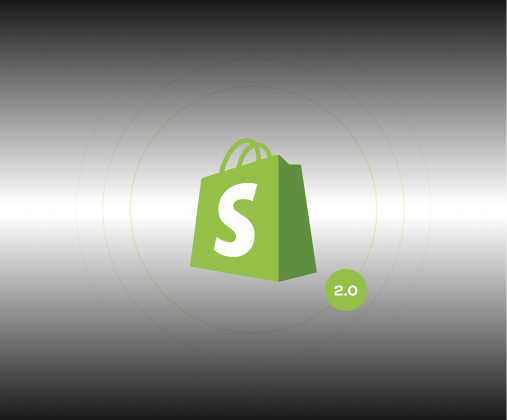
JUNO ARE A HUGELY VALUED PARTNER FOR US AS WE CONTINUE TO EVOLVE OUR ECOMMERCE ACTIVITIES. UNFAILINGLY KNOWLEDGEABLE, AND PRO-ACTIVE; THEIR CLIENT LIST SPEAKS VOLUMES, BUT THEIR ACTIONS SPEAK LOUDER STILL.
David Webster, Head of B2C, Bollin Group
Automate your business with seamless Shopify and System Integrations
At Juno Ecommerce, we specialise in delivering seamless Shopify and Systems integrations designed to automate your business operations and fulfilment flows. Whether you need to integrate your ERP, WMS, PIM, or an Inventory Planner tool with Shopify, we offer tailored solutions that reduce manual workloads and enable your team to focus on optimising customer experience.

Businesses often underestimate the costs and complexities of custom integrations. While they might seem a good idea and cost-effective at first, custom solutions can quickly become a major headache - requiring continuous updates, manual fixes, and in some cases, complete rebuilds. Supported integrations, on the other hand, offer long-term stability, lower costs, and peace of mind.
Connecting your ERP system with Shopify ensures that your product, order, and customer data flow in real-time between platforms. This reduces manual entry errors and enhances efficiency.
With a Warehouse Management System integrated into your Shopify store, you can manage stock more effectively. Real-time inventory syncing ensures your product availability is always up to date, reducing stockouts by 35% and improving stock accuracy by up to 30%.
Integrating a PIM system with Shopify centralises your product data, making it easier to manage and distribute across different sales channels. This improves product consistency and accelerates time to market.
Automating inventory planning ensures you always have the right stock levels, optimising your supply chain. Businesses that integrate inventory planning tools with Shopify see an average of 20% improvement in stock forecasting accuracy.
Real-Time Inventory Syncing: Supported integrations sync your inventory across all channels in real time. No more manually updating spreadsheets to keep things aligned. Studies show that real-time inventory syncs can reduce stockouts by 35% and improve stock accuracy by up to 30%.
Operational Efficiency: By automating processes like order management and inventory updates, businesses using iPaaS systems like Patchworks or Jitterbit save an average of 20+ hours per week. That’s valuable time your team can spend on improving customer service and refining your sales strategy instead of wrangling with systems.
Cost Savings: Custom integrations can incur unexpected costs due to maintenance and reworking, especially when APIs are deprecated or systems undergo major updates. On average, businesses spend 40% more on maintaining custom integrations over five years compared to supported solutions.

Transactions through Juno stores
Client Retention Rate
Ecommerce projects delivered

At Juno, our expertise in all things Shopify is crucial to the success of any systems integration project. As a technical agency, we don’t just focus on building integrations—we ensure that every aspect of your Shopify store is optimised for performance, UX, and SEO.
Best-in-Class Data Structure: We design and implement robust front-end data structures and hierarchies that enhance user experience while improving search engine optimisation. This ensures that your site is both easy to navigate and highly discoverable.
Data Mapping Best Practices: Our deep understanding of Shopify’s architecture allows us to leverage best practices for storing and mapping data to and from your Shopify store. This means your data flows seamlessly across all systems, improving operational efficiency and making it easier to scale as your business grows.
By partnering with us, you’re not just getting a functional integration—you’re setting your business up for success by ensuring everything, from back-end data to customer-facing interfaces, works cohesively to drive growth and satisfaction.
Many businesses don’t realise the long-term costs of custom integrations until it’s too late. We’ve worked with several clients who had to rebuild their entire middleware solutions due to system updates or deprecated APIs. This not only resulted in unexpected costs but also caused significant downtime.
A recent study showed that businesses relying on custom middleware spent up to 30% more on IT resources annually compared to those using supported solutions. Additionally, they experienced 25% more downtime, leading to revenue loss and customer dissatisfaction.
By using supported integrations, you avoid the cost of hosting, maintaining servers, and employing a dedicated IT team for system support. These costs can quickly add up, particularly for small and medium-sized businesses.


Streamline your business operations with real-time data syncing across ERP, WMS, and Inventory Planner tools. This automation reduces manual tasks, improve

Supported integrations provide long-term stability, ensuring your systems stay up-to-date and functional without the risk of costly rebuilds or maintenance. With proactive updates and dedicated 24/7 support, you reduce downtime and avoid the unexpected costs that come with custom solutions, giving your business peace of mind.

With supported integrations handling maintenance and updates, you can shift your focus from system upkeep to growing your business. This means fewer IT headaches and more time dedicated to improving customer experience, increasing sales, and optimising your strategy—all without worrying about system failures or compatibility issues.

David Webster, Head of B2C, Bollin Group
We partner and work closely with the best in the Ecommerce industry to grow, support, empower and scale our clients' businesses.
